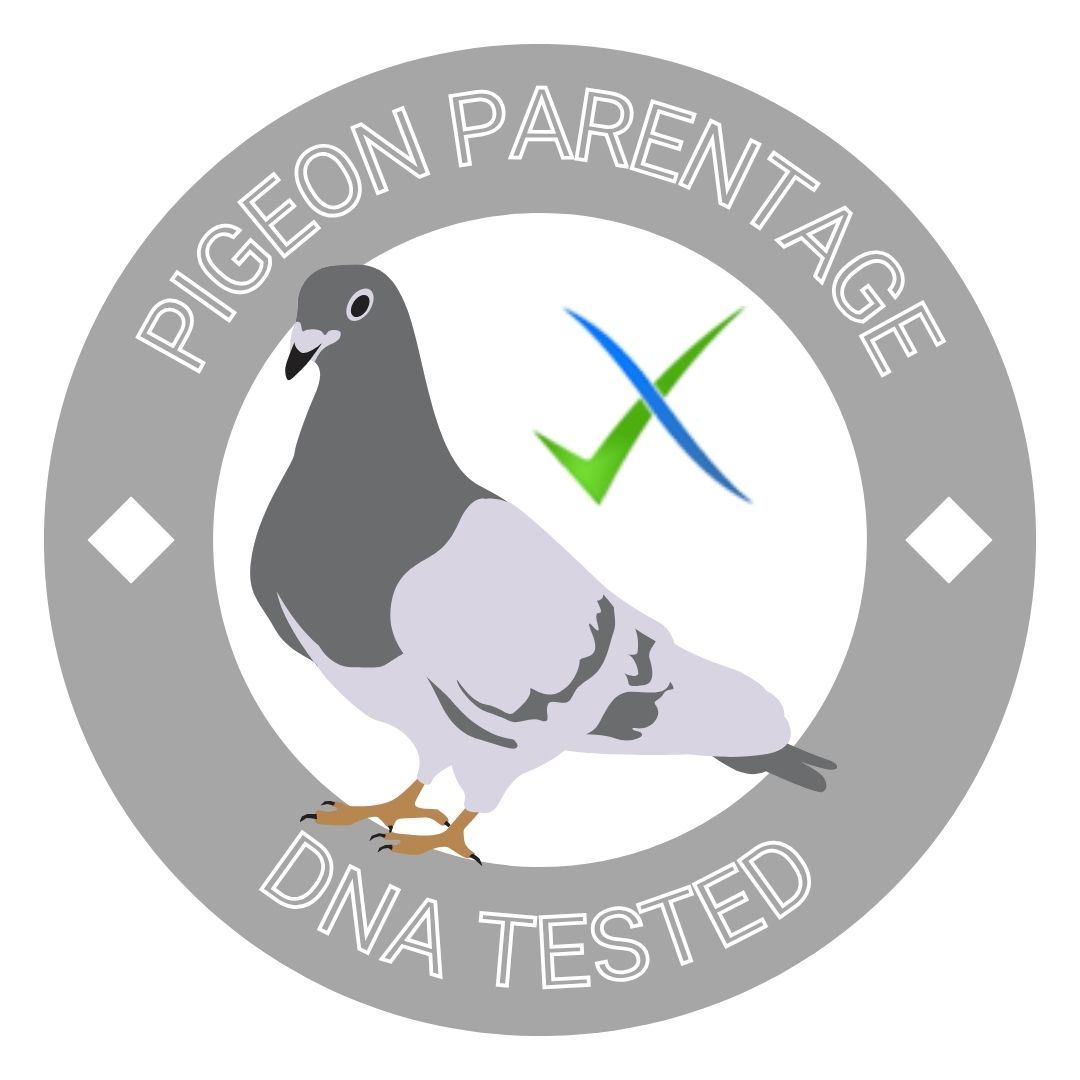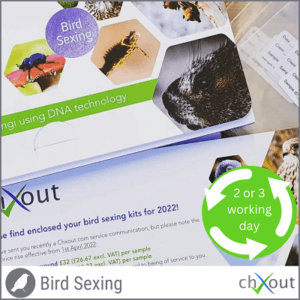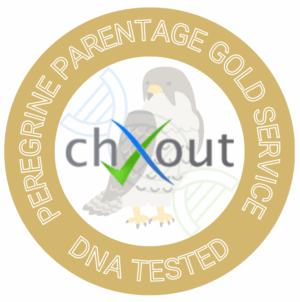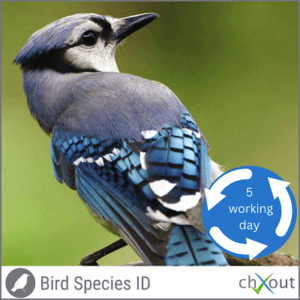Pigeon Parentage Quick Notes
- Turnaround time: 8 working days
- The mother is required to participate in the test
- Ideal sampling material: blood
- The basic price includes one time analysis of the profiles created from each sample to determine parentage.
- For an extra charge DNA can be stored to be used in future parentage tests if required.
A pigeon DNA test to determine parentage is a powerful tool for breeders and owners, allowing the determination of clear genetic links between a chick and its parents.
The domestic pigeon (Columba livia domestica) is known for its navigational ability and used in racing competitions across the world, covering distances from 100 to 1000 kilometres. The best performing pigeons and their offspring can be extremely valuable which has resulted in a need for an accurate method of parentage identification and verification.
The chXout® racing pigeon parentage service starts at £147.60 (incl. VAT) and includes one chick, the mother and one potential father. If you require additional chicks or potential fathers to participate in the test that is not a problem, these can be added on individually.
The basic price includes one time analysis of the profiles created from each sample to determine parentage. If you would like us to store the DNA for future parentage testing, please see further information below.
How does it work?
Making use of a special technique known as Polymerase Chain Reaction (PCR), we are able to copy all the regions of DNA we require for a pigeon DNA test to determine parentage.
chXout® uses twelve core DNA markers and four back-up markers to carry out the parentage analysis.

We make use of PCR to copy multiple highly variable regions, known as short tandem repeats (STR’s). By copying and analysing these regions we are able to produce a DNA profile for each individual bird.
Each individual has two alleles (variations between individual sections of DNA) at each DNA marker. One of these is inherited from the mother and the other from the father. In your report these are shown as a number which represents the allele size from the DNA profile (see above example).
As with a human paternity test, we are then able to compare the DNA profiles of the squab and dam to rule out the alleles inherited maternally.
By process of elimination, we are then left with the alleles corresponding to the alleged sire, if we can then find a match, we can conclusively say that the tested male is the biological sire of the chick.
Instructions
- Collect a blood, feather or egg membrane sample using the Sampling Instructions document. For a feather sample we require at least 6 plucked feathers. We are unable to accept a mouth swab for a parentage test.
- Ensure that your samples are sealed securely and labelled correctly.
- Package your samples safely, including your client reference for identification.
- Send your samples to us at chXout, The Durham Genome Centre, Park House, Station Road, Lanchester, DH7 0EX.
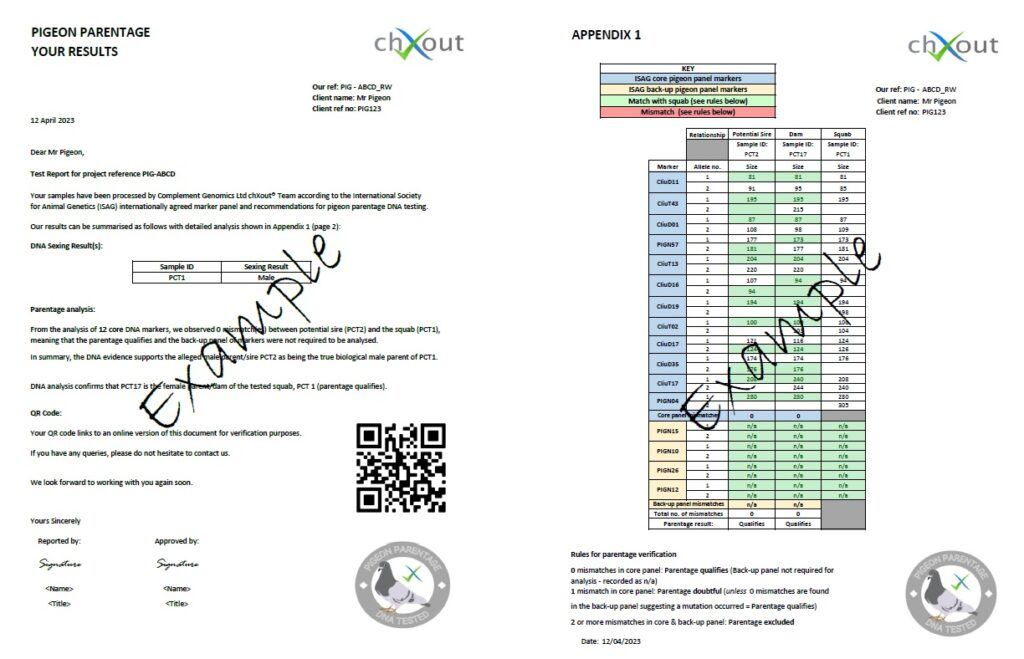
When your sample arrives with us, you will receive an email to confirm sample receipt and expected due date.
We do not operate on weekends or bank holidays and the day your sample is logged at our laboratory is considered “day 0.”
Results are provided within 8 working days by email with a report as a PDF attachment.
DNA Storage For Future Tests
The basic price includes one time analysis of the profiles created from each sample to determine parentage.
For a small additional charge, we can store the DNA to be used as part of future parentage testing cases.
The mother's sample is used to rule out the maternally inherited alleles to check if the remaining alleles correspond with the potential father.
In this case, we can extract the DNA from the samples that we do have and hold it ready to complete the rest of the steps in the process when we have the remaining samples. This means that the DNA is extracted while the sample is still at its best and we can store it appropriately until needed.

